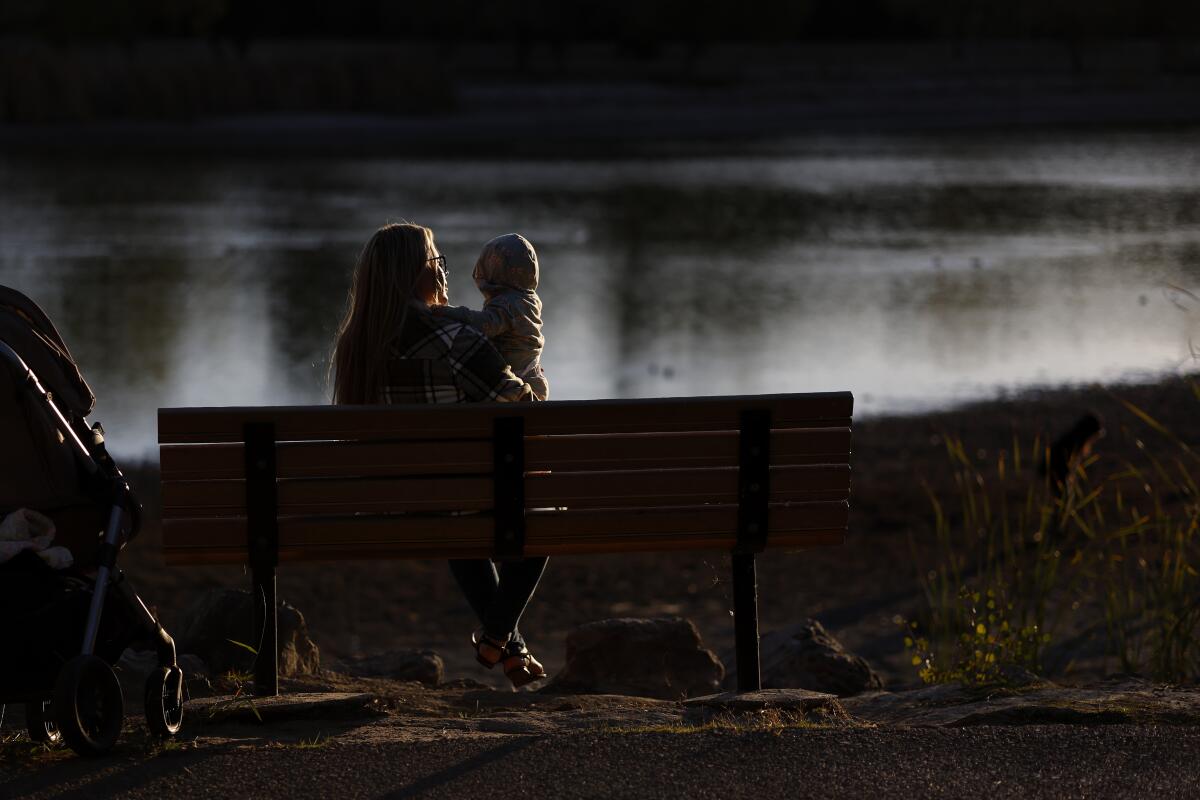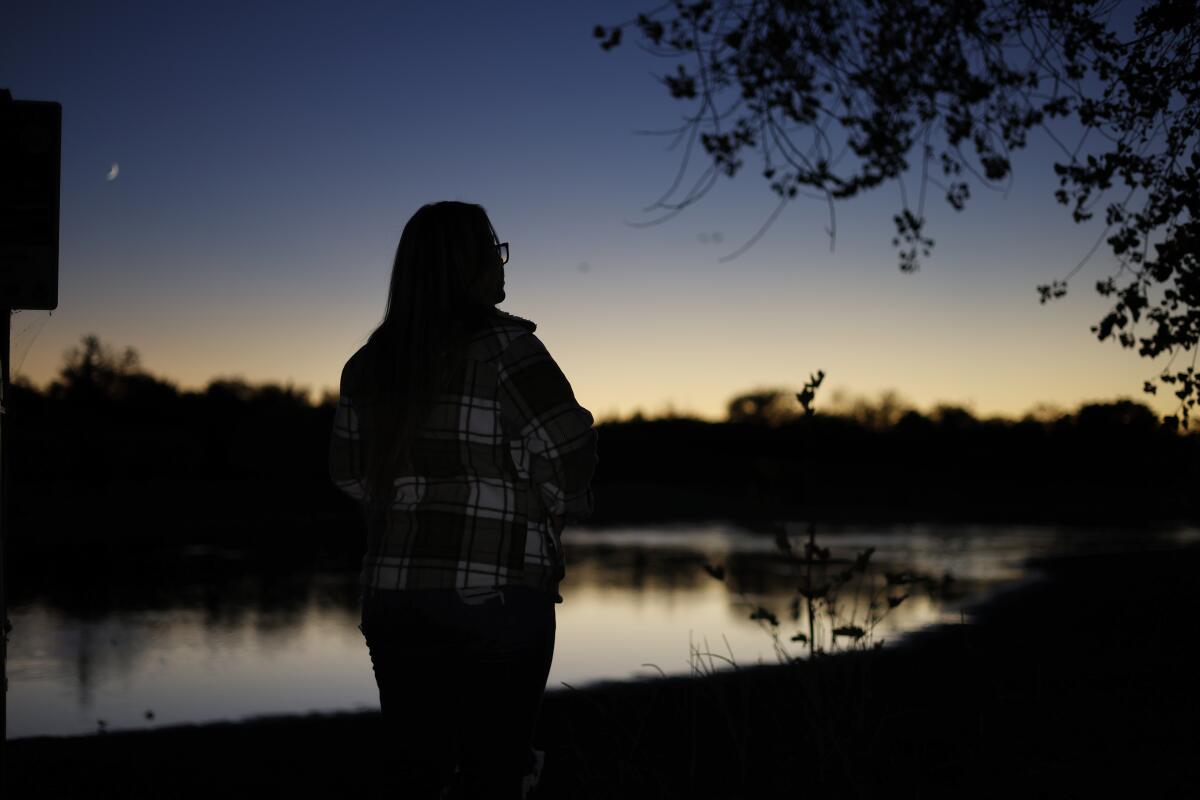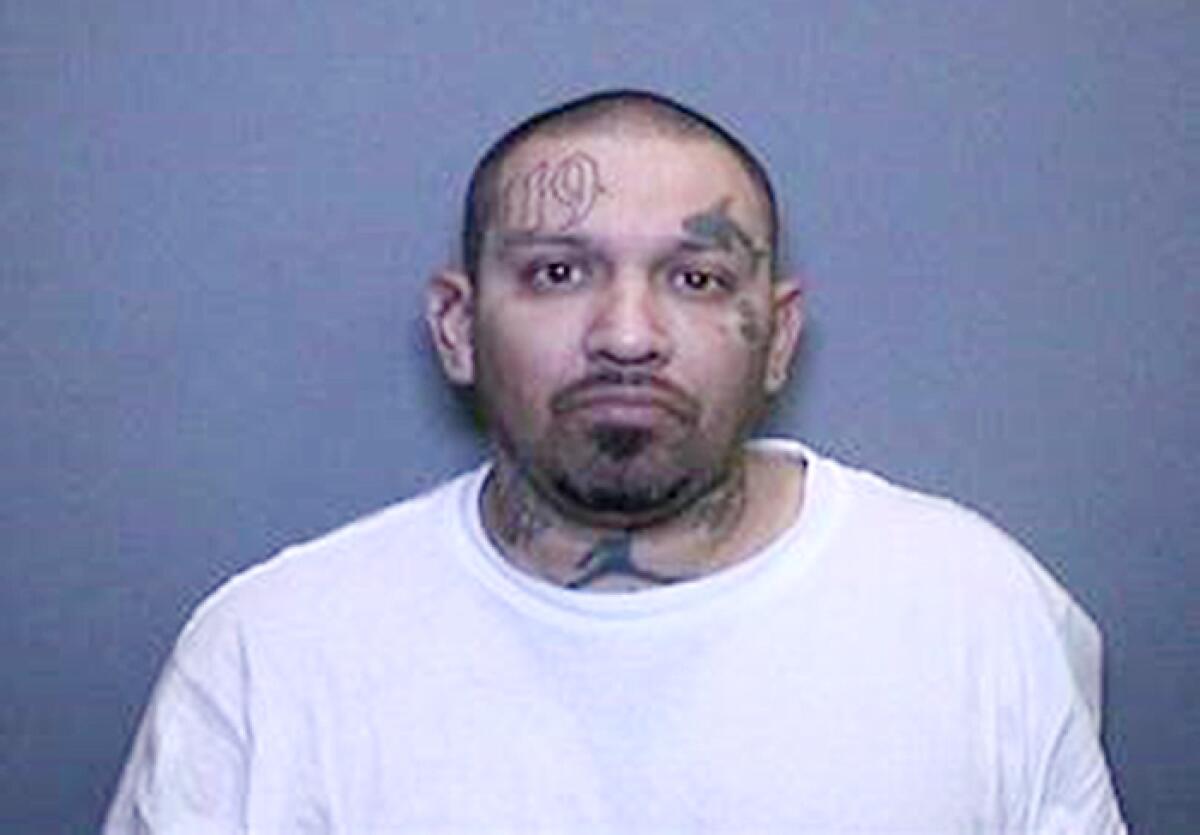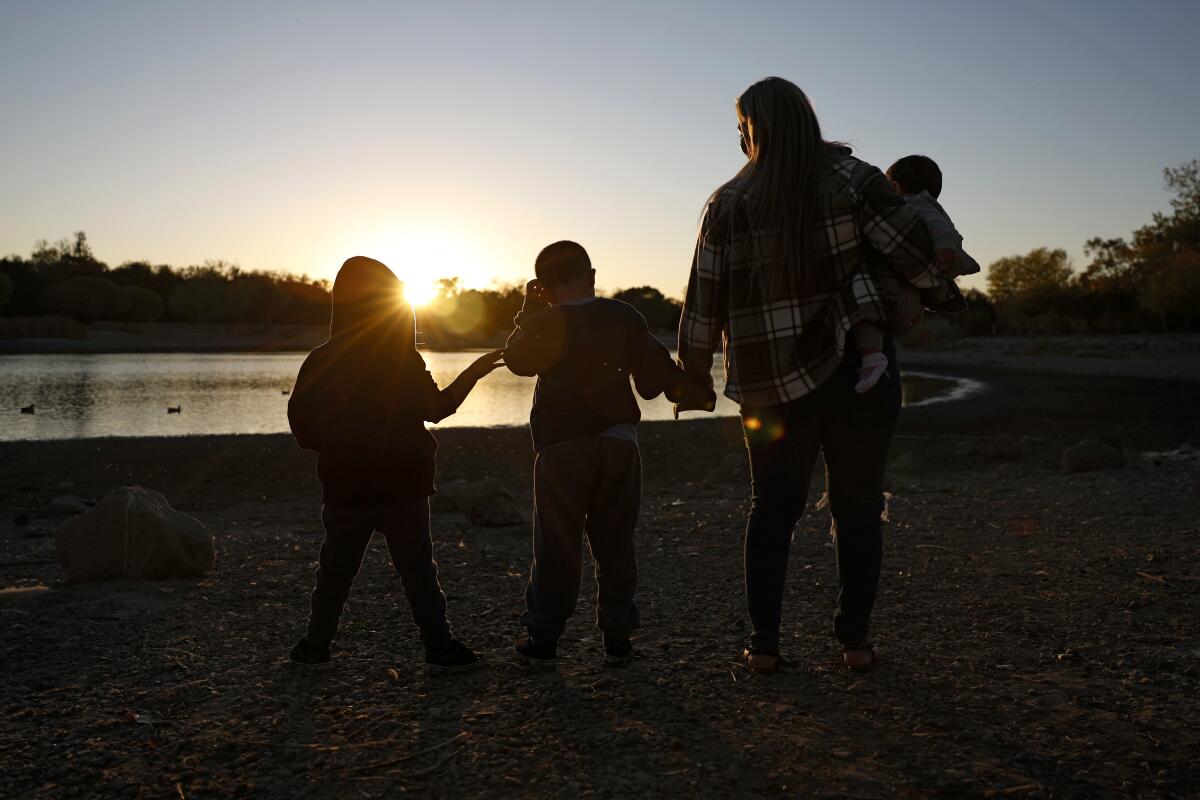Bimbos, ‘bottom girls’ and the ugly reality of misogyny in our justice system

- Share via
A “bimbo” who engaged in transactional sex, whose fear was faked, and who is now lying to make herself look better.
That’s how Harvey Weinstein’s lawyer recently described California first partner Jennifer Siebel Newsom, arguably one of the most prominent women in the state, who is slated to testify in coming weeks that she was raped by the despicable once-mogul in a hotel room during the height of his dominance in Hollywood.
If there is any uncertainty that misogyny is thriving and pervasive in our justice system, let the hatefulness of that depiction sink in.
No matter what the #MeToo movement did in broader society, when sexual assault victims step into a courtroom, they still are smeared as predators and perpetrators responsible for the violence done to them.
If Siebel Newsom’s treatment is shocking — though sadly expected — let me tell you about Allison, a poor Latina in Northern California facing a prison sentence after being brutally trafficked.

Allison is not her real name, because she’s too afraid to reveal it. Like Siebel Newsom, she’s headed to court soon, too — in a last-ditch attempt Tuesday to beg a judge to allow her to change her plea in a federal felony case from guilty to not so she can at least tell her side of the story.
“I want [people] to know about everything I went through,” she told me last week, her 11-month-old baby girl gurgling in the background. “I believe this is the only way they’re going to understand everything.”
Allison pleaded guilty in 2016 to a single count of conspiracy to commit sex trafficking of children, under threat of a 10-year mandatory prison sentence if she didn’t. Prosecutors, who are now pushing for a two-year prison term, allege she assisted San Jose tattoo artist/pimp Ariel “Shy” Guizar-Cuellar in running a commercial sex ring that involved underage teens. She says she was one of Shy’s victims, too, and never benefited or willingly aided him.

Her ordeal with Shy began the day before Easter in 2015, when Allison, then 20, made the mistake of getting dropped off at his San Jose shop looking for help, or at least some understanding. He was an ex-fling who first approached her on Instagram. He once lent her a few hundred dollars when her friend’s car was impounded. Then he threatened to release a sex tape he’d made of her when she didn’t have the money to pay him back.
Allison has made some poor choices.
But really, as in many sex trafficking cases of vulnerable women and girls, the choices that led her to Shy’s shop weren’t always her own. Maybe her grandfather molesting her when she was 3 had something to do with it. Maybe being raped by her stepbrother at age 14, the day before she started high school, played a part. Maybe it was her mom always kicking her out of the house, calling her a “molested whore,” then reporting her as a runaway to police, that left her mistrustful and damaged.
That night, she was spiraling down and Shy saw opportunity. Allison had a baby at age 16 and another shortly after. The children’s father was abusive and had months earlier taken the kids. There was no custody agreement, and police told her there was nothing they could do.

The kids “glued my heart together” after the trauma of her childhood, she said. Shy promised he could help her get them back — help her earn enough money to hire a lawyer. All she had to do was go on “dates,” he told her, with men who wanted company, not sex.
“Now I’m like, ‘Why were you so stupid?’” she told me.
Within days, she was on her first date, in the back room of the tattoo shop, with a man who wasted no time unbuttoning his pants and raping her. She was so shocked and panicked that she froze, she told me. “I didn’t feel like I could even say no,” she said.
Within a few more days, she was one of a handful of women Shy was trafficking daily.
“I just kept thinking about the kids and wanting to get the kids back,” Allison explained. “Even though it was so horrible, I was like, ‘There’s going to be a light at the end of the tunnel.’”
But of course there was no light. Shy kept the money. He began pushing drugs like Adderall and meth on her to keep her awake — refusing to let her sleep or eat until she had earned him $1,000 a day. He made her dance in clubs from 9 p.m. to 2 a.m. most nights, cash that did not count toward his quota. He connected her phone to his iCloud account and monitored her texts.
He became violent, and the promise of help turned to threats — that he would kill her kids if she tried to leave. He lined Allison and two other women against a wall and beat them with electrical cords, vowing to make it worse it they flinched. He burned her with hot meth, heating it in a pipe and flinging it at her. Once, he smashed Allison’s face into the external corner of a wall — the pointy part — when she wanted to leave.
“I can’t even explain that feeling,” she said of that attack. “I kind of died inside right there. Like, ‘OK, I’m here.’”
But there was something inside Allison that wouldn’t give up.
One night in early July, about three months after Shy first began sexually exploiting her, he gave her and two other women $100 and told them to rent a room and not return until they’d earned their money. They tried multiple dingy motels, but couldn’t find one cheap enough. With the clock ticking down, Allison’s desperation turned to boldness. She suggested they drive to her mom’s house a few hours away. They could eat and rest and then figure out a plan, she told them. For reasons she still doesn’t understand, Shy said it was OK.
Allison remembers dawn breaking as she reached the Central Coast, “and I knew once I got to my mom’s I was free,” she said. “I remember the sun was coming up and feeling like, ‘I made it, I made it.’”
Allison thought that was the end of Shy in her life, despite his continued threats, and it was — until May 2016 when she was arrested while driving to a Taco Bell on a warrant she knew nothing about. Prosecutors from the U.S. Dept. of Justice never even bothered interviewing her before indicting her. Seven months pregnant at the time, she sat in the police station, bawling, as she watched officers high-five her arrest as if they had pulled a hardened criminal off the streets.
Later, Allison found out the details of her alleged crimes. Three girls Shy was trafficking were underage. Allison was accused of helping to traffic one of them — a teenager from Modesto identified as B.M. in court documents.
Here’s what the office of Stephanie M. Hinds, the United States Attorney for the Northern District of California, alleges Allison did: Take photos of B.M and herself for internet ads. Arrange for meetings with “dates” from those ads. Rent motel rooms. And the worst one: posting a video online of B.M having sex. Since B.M was 17 at the time, that’s distribution of child pornography.
Allison said she posted the video at Shy’s order. In the social media post, she can be heard calling B.M. derogatory terms — these comments have been the center of prosecutors’ claims that Allison was a willing accomplice.
“When he said to do things, I did it because I wanted to stay clear of him hitting me,” Allison told me. She knows posting the video was wrong, but at the time, she was just trying to survive. She didn’t know B.M. was a minor. Not an excuse. Just a fact. But B.M. committed suicide last year, making Allison’s actions all the more tragic and destructive.
While most of us know fight or flight as the response to danger, there’s also freeze and fawn — that last one being a reaction to appease and acquiesce in the hopes of mercy.
Like many sexual assault survivors, Siebel Newsom described freezing in her encounter with Weinstein, the same way Allison did during her first encounter in the back of the tattoo shop. But fawning was always Allison’s real method of coping, giving her tormenters what they wanted, whether it was Shy or prosecutors, and hoping for the best.
Government prosecutors seem to acknowledge that Allison was a victim in court documents, but they also don’t seem to care.
The prosecutors wrote in a news release and in Shy’s sentencing recommendation that he “subjected both the child victims and his female co-defendants to physical and sexual abuse,” earning him 38 years in prison from a federal judge in San Jose last month.
Yet in court documents, prosecutors describe Allison as a “bottom girl,” a derogatory and salacious term meant to imply she was benefiting from and agreeable to her own exploitation — working with Shy to keep the other women he trafficked in line instead of being abused into submission herself.
That prosecutors would resort to this kind of shaming and suggestive language really says a lot about the case and their mind-set. And whom they didn’t charge in this conspiracy says even more about women and justice.
Shy’s “apprentice,” a man who was often present and involved according to the testimony of the witnesses, was not charged. The motel owners and clerks were not charged, despite renting rooms again and again and seeing sex buyers come and go. The hotel chains that allowed their brands to be used for child sex trafficking were not charged.
No one in the tattoo shop was charged, despite its backroom being used for prostitution. Not a single john was named in the conspiracy, despite there likely being hundreds. The internet sites that posted the child pornography ads? Also not charged by these federal prosecutors, though other state and federal prosecutors managed to shut down backpage.com, one of the worst offenders — a great use of prosecutorial power.
I could go on, but you get the idea. Instead, our tax dollars are being used to put Allison in prison, which could mean three of her children will wind up in foster care, extending the cycle of generational trauma that started this whole mess.
The government is opposing Allison’s request to change her plea because “it looks and smells like gamesmanship” to them, according to court documents, and not imprisoning her “undermines the deterrent effect of this prosecution.”
I expect defense attorneys, including the one representing Weinstein, to resort to this kind of bottom feeding. I expect better from federal prosecutors, even if it means admitting their news-release-worthy conspiracy case isn’t as tidy as they’d like.
That this prosecution comes from an office led by a woman (and where the courtroom prosecutors are also women) just makes it more disturbing. Like racism, misogyny in our justice system is systemic.
The only thing this prosecution is deterring is the ability for Allison to get on with her life. She is in therapy, raising kids and taking the prerequisite classes to become a registered nurse. From my perspective, it looks as if Allison has gone from fawn to fight. And the prosecutors just don’t like it.
The minimum fair justice requires is that she be allowed to plead not guilty and tell this story in a courtroom.
Anything less will just be more of the same — courts blaming women for the violence against them and their all-too-human responses, whether it’s the privileged first partner of California or a beaten-down Latina from Gilroy.
More to Read
Sign up for Essential California
The most important California stories and recommendations in your inbox every morning.
You may occasionally receive promotional content from the Los Angeles Times.














